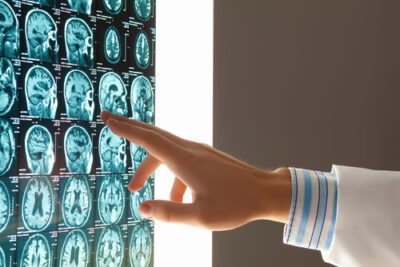Head Injuries – What You Can’t See Could Hurt You

Oakland Head Injury Attorney Covers the Differences Between Open and Closed Head Injuries
A head injury is any sort of injury to your brain, skull, or scalp. Head injuries can range from a mild bump or bruise to a traumatic brain injury. Common head injuries include concussions, skull fractures, and scalp wounds. The consequences and treatments vary greatly, depending on what caused the injury and how severe it is. The two broad categories of head injuries include open and closed head injuries.
Open Head Injuries
Open head injuries are injuries in which an object strikes a person’s head and ends up breaking the skull and penetrating into the person’s brain. These injuries are also sometimes called penetrating head injuries. Any number of accidents can result in an open head injury. They can occur in auto accidents, sports accidents, workplace accidents, or gunshot or knife wounds that create a skull fracture. Even objects like a screwdriver can pierce the skull and cause brain injury.
Closed Head Injuries
A closed head injury doesn’t involve a fracture, but can be more serious than an open injury due to the possibility of brain swelling and the formation of dangerous blood clots inside the skull. A closed head injury could result from collisions involving cars, motorcycles or bicycles — and pedestrians involved in such accidents. They could also result from a slip and fall, an attack or blow to the head, or if your head experiences a sudden, jerking motion (this could occur in a sports-related or occupational-related accident). In some, but not all cases, a closed head injury could lead to traumatic brain injury. It’s also important to note, that even if you are wearing a helmet (e.g. motorcycle, bicycle, construction) a closed head injury can occur.
Head Injury Symptoms
Soon after an accident or injury, it may be difficult to know whether you or a loved one has suffered a brain injury, especially when no visual indications of serious injury exist. Here are some things to look out for when evaluating an accident victim’s potential for brain injuries:
- Persistent headaches
- Dizziness
- Memory loss
- Nausea
- Vomiting
- Difficulty sleeping
- Light sensitivity
- Loss of coordination
- Seizures
When to Seek Professional Care and Guidance
Head injuries shouldn’t be taken lightly. If any of the above symptoms are present soon after an accident or injury, you should seek immediate medical attention. It’s even possible to suffer from a brain injury and still feel fine. Call 911 or go to an emergency room if you experience loss of consciousness, confusion, or disorientation. Even if you don’t go to the ER immediately after the accident, you should seek help if you still have symptoms after a day or two.
Survivors of traumatic brain injuries often face lifelong challenges when learning to cope with permanent damage, such as the loss of various physical and mental abilities. In many cases, a traumatic brain injury (TBI) will also affect the survivor’s family and loved ones who may struggle to afford the daily care and medical treatment that is often necessary after such serious damages. The financial costs of living with a TBI can quickly add up and deplete a family’s life savings in a short amount of time.
If you or someone you love has suffered a traumatic brain injury due to another’s recklessness or wrongdoing, it is well within your rights to seek compensation from the at-fault party. The Oakland attorneys at the Law Offices of Edward Casey Jr. are dedicated to helping families overcome the incredible injustice of such a devastating injury by the holding the responsible party accountable. Contact us to discuss whether legal action is the right choice for your circumstances.
Subscribe to Our News
Error: Contact form not found.